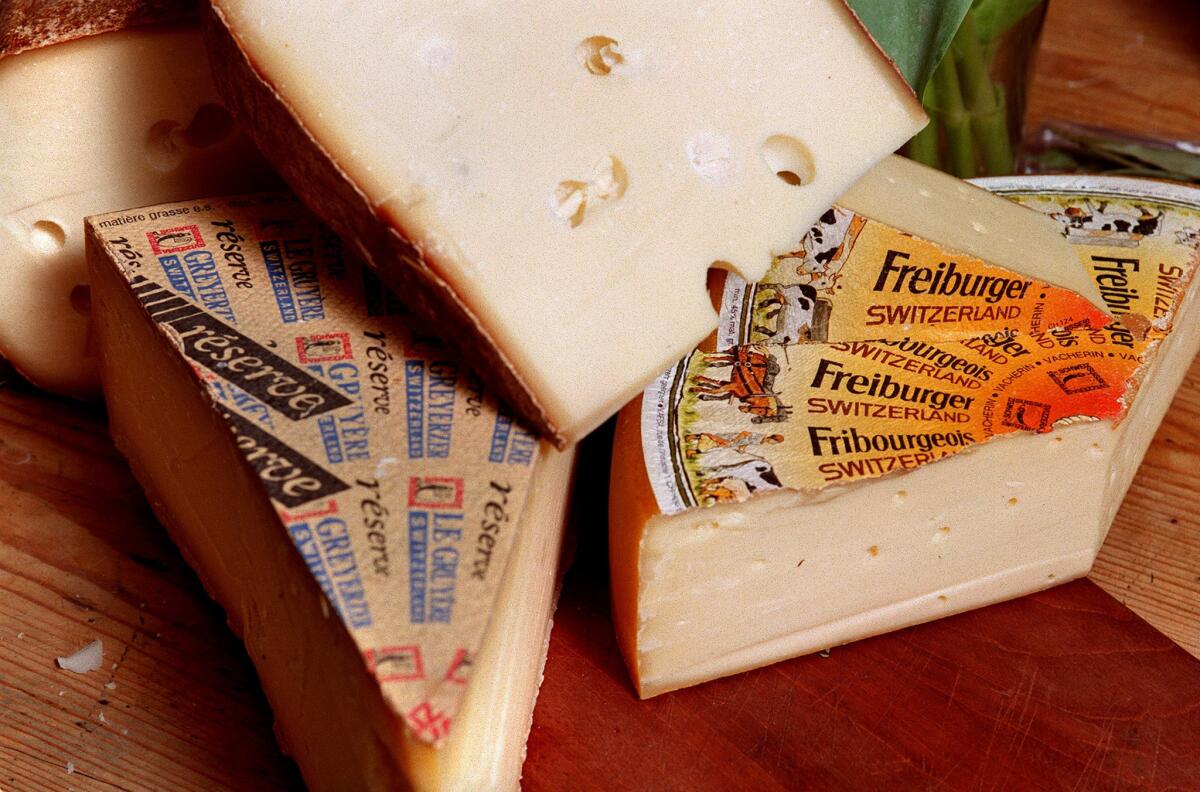Is cheese really like crack? Drilling down on the science behind the viral cheese study

A recent study draws a relation between cheese and addictive behavior.
- Share via
For those who believe their addiction to cheese is real, a recent study by the University of Michigan, published in the U.S. National Library of Medicine, reads like a validation — scientific proof that food addiction does exist.
But does the study really confirm your need for a daily cheese fix?
According to the National Institutes of Health Dairy guidelines, your recommended daily cheese intake should be 1.5 ounces. To put things in perspective, there are about four to five ounces of cheese on an average 14-inch pizza.
If you’re eating more than a couple of slices, you’re going over the recommended allotment. According to the study, it’s not your fault. But after digging deeper into the research, the basis for the cheese-and-drugs connection actually comes from animal models, not human behavior.
“Although there is little evidence in humans of what foods may be addictive, animal models suggest that highly processed foods are associated with addictive-like eating,” reads the study, which used answers from the Yale Food Addiction Scale, designed to measure if someone has a food addiction, to determine its results.
“Rats maintained on a diet of highly processed foods, such as cheesecake, exhibit downregulation in the dopamine system that also occurs in response to drugs of abuse,” reads the study. Translation? The rats used in a study on addiction-like reward dysfunction and compulsive eating in obese rats exhibited addictive-like behavior in response to certain foods, such as cheesecake, but not to their regular rat food.
And the cheese-equals-drugs idea came from Dr. Neal Barnard, president of the Physicians Committee for Responsible Medicine and author of “Breaking the Food Seduction.” In an article for VegetarianTimes.com, Barnard called cheese “an addiction.”
“Actually, it’s more accurate to say I’m hooked on casomorphins, the tiny, biologically active compounds produced when my body breaks down milk proteins,” said Barnard.
When the body attempts to break down casein, a protein found in all milk products, the amino acids in the protein don’t completely separate, resulting in strings of amino acids. Casamorphins are the smaller strings of amino acids.
“Casomorphins attach to the brain’s opiate receptors to cause a calming effect in much the same way heroin and morphine do,” said Barnard.
And since cheese has a concentrated content of casomorphins, Barnard suggested it may be called dairy crack.
So the decision to call cheese crack is entirely yours. And if some scientific studies make you feel better about eating a quesadilla for lunch and half a cheese board before dinner, so be it.
#crayforcheese. Follow me on Twitter @Jenn_Harris_
Hoy: Léa esta historia en español
ALSO:
Bulgogi fries and sashimi lunch sets at The Fresh in K-Town
The best table bread in L.A. may be at Craig’s in West Hollywood
Download the new iOS 9.1 for the burrito, Champagne and hot dog emojis
More to Read
Eat your way across L.A.
Get our weekly Tasting Notes newsletter for reviews, news and more.
You may occasionally receive promotional content from the Los Angeles Times.











